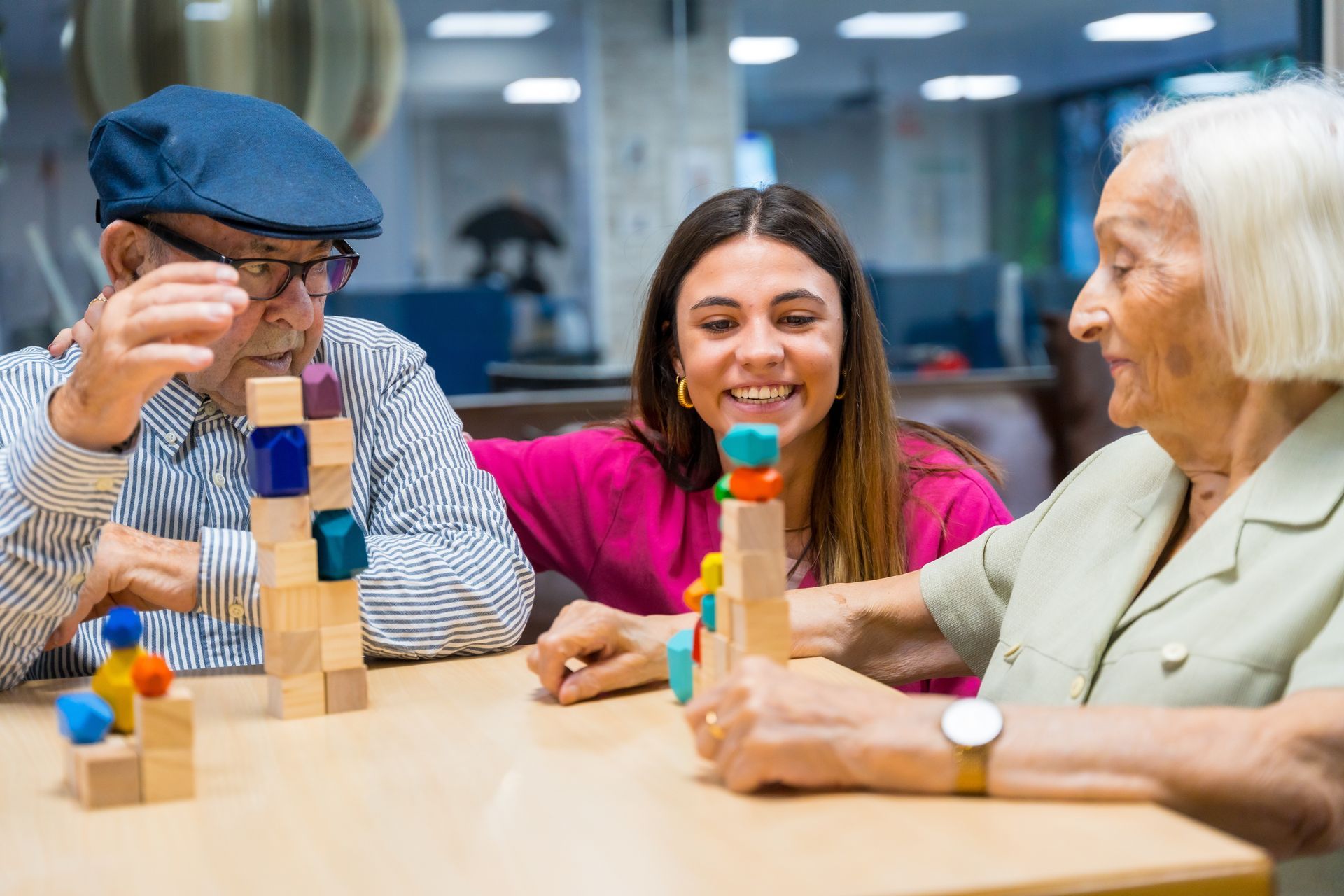BLOG
Tips for Caring for a Loved One with Alzheimer’s
Caring for a loved with Alzheimer’s can be a challenge so we are here to provide some great tips for caring for our loved ones living with Alzheimer’s. Becoming a caregiver for someone living with Alzheimer’s can easily become overwhelming and chaotic if you do not take the time to prepare for this newfound responsibility. If you are feeling unsure of your abilities in this new role, the best solution is to reach out for advice and support from those who have expertise in that given area.
The professional memory care providers of Assured Assisted Living are always happy to offer their knowledge and services to others who are affected by progressive mental diseases such as Alzheimer’s. We recognize how difficult it is to give your loved one the quality of care they deserve each and every day, which is why we want to share a few basic tips on Alzheimer’s care strategy to make sure you are providing the best care possible for your loved one.
Keep It Consistent
One of the best strategies to avoid an episode of confusion among individuals with Alzheimer’s is to establish and maintain a daily routine. This should include everything from when the person wakes in the morning to when they peacefully fall asleep that night. Any deviations from this familiar set of activities could easily send them into a downward spiral of disorientation and terror.
Of course, there will be some spontaneous activities every now and again such as a visit from friends or family members, or a trip to the doctor. For instances in which you are introducing something a bit new to your loved one’s schedule, it is best to have them in an alert and stable state of mind before doing so. This period of time most often exists earlier in the day before the person has become tired either physically or mentally, though it can vary from person to person.
Communicate Clearly
Often times when an individual with Alzheimer’s feels pressured or panicked to complete an action, they will begin to react negatively to the situation. Although it can sometimes be frustrating to communicate with your loved one, it is critical that you remain calm and patient throughout the conversation in order to provide them with reassurance rather than anger. When you speak to them, be sure to speak slowly and clearly with your loved one, and try to answer all of their questions or concerns as best you can, even if they repeat themselves more than once.
Many caregivers often assume that they should avoid the topic of Alzheimer’s disease, though this is certainly not advised. Creating an open channel of honest communication between you and your loved one is absolutely essential, and many find that this takes a great deal of stress away when having to make major life decisions about continued memory care, and that opinion is typically also shared by those with Alzheimer’s themselves. It is important to try and speak directly to your loved one about their disease, as they should have a say in how they wish to live their life for as long as they are able to do so.
Alzheimer’s Communication Tips
These are a few tips for communicating with someone who has Alzheimer’s.
- Make sure you have their attention before you start talking
- Keep it simple
- Reword your statement rather than repeat
- Focus on being positive
- Be patient
- Reduce or remove background distractions
Provide Stimulation for Their Mind
An essential part of enjoying life is being involved and active in the things you love to do. This does not change as a person ages, or as their memory worsens. Individuals with Alzheimer’s are highly encouraged to engage in regular social and recreational events. These types of activities provide those with Alzheimer’s a chance to stimulate their mind in an enjoyable and meaningful way. Providing stimulation as a part of an Alzheimer’s care strategy has also been shown to improve mental function, which may help your loved one to remember things more clearly. Many of our own residents thrive when participating in activities like:
- Putting puzzles together
- Playing or listening to music
- Reading
- Working on arts and crafts projects
- Gardening
Even if your loved one would prefer not to go out very often, you can still include them in daily tasks that you perform around the home such as setting the table or watering the plants.
A Few Alzheimer’s Tips for You
An important part of caring for a loved one with Alzheimer’s is to not forget to care for yourself too. It can be all too easy to get caught up in what others in your life may need, and as a result you may find that your own health and well-being starts to decline. This not only harms you but is can also negatively impact your loved one as they begin to sense your constant distress and anxiety.
It is recommended that Alzheimer caregivers:
- Maintain their own social and personal life
- Bring on as much help as they can to assist in caring for their loved one
- Take regular breaks and periods away from their care partner duties
- Reach out to others with similar experience, which may possibly include attending a support group
- Ask questions about the disease, and seek answers from medical professionals who are familiar with your loved one’s case
For more Alzheimer’s communication tips and strategies check out our memory care page or contact us at (303) 814-2688.














